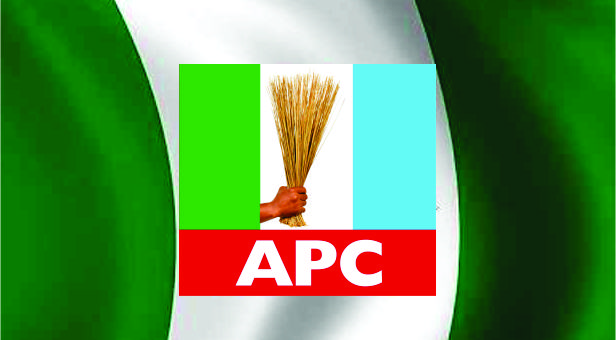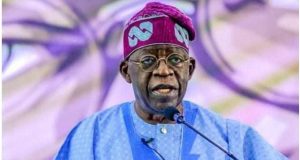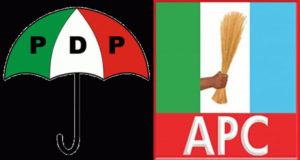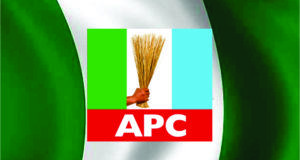 APC in Kogi State on Thursday has said the Peoples Democratic Party and other opposition parties are yet to engage in any form of campaign ahead of the November 16 governorship polls.
APC in Kogi State on Thursday has said the Peoples Democratic Party and other opposition parties are yet to engage in any form of campaign ahead of the November 16 governorship polls.
The Director-General, Bello Onoja Campaign Committee, Smart Adeyemi made this known on behalf of APC in a recent telephone interview with Punch.
According to Smart, the total quiet from opposition parties is a sign that they have accepted defeat.
He also urged the security agencies to be alert.
His words, “Have you seen their campaign posters, billboards or handbills in any part of the state?
“They are not also engaging us in anyway, they claimed to be doing a house-to-house campaign, but we are also going from house to house and we have not met them anywhere.
“This is pregnant with meaning and we want the security agencies to be vigilant to prevent innocent citizens from being harmed.”
Do you agree with this?
The All Progressives Congress (APC) is a political party in Nigeria, formed on 6 February 2013 in anticipation of the 2015 elections. APC candidate Muhammadu Buhari won the presidential election by almost 2.6 million votes. Incumbent President Goodluck Jonathan conceded defeat on 31 March. This was the first time in Nigeria’s political history that an opposition political party unseated a governing party in a general election and one in which power transferred peacefully from one political party to another. In addition, the APC won the majority of seats in the Senate and the House of Representatives in the 2015 elections, though it fell shy of winning a super-majority to override the ability of the opposition People’s Democratic Party to block legislation.
Formed in February 2013, the party is the result of a merger of Nigeria’s three biggest opposition parties – the Action Congress of Nigeria (ACN), the Congress for Progressive Change (CPC), the All Nigeria Peoples Party (ANPP), a faction of the All Progressives Grand Alliance (APGA) and the new PDP – a faction of then ruling People’s Democratic Party. The resolution was signed by Tom Ikimi, who represented the ACN; Senator Annie Okonkwo on behalf of the APGA; Ibrahim Shekarau, the Chairman of ANPP’s Merger Committee; and Garba Shehu, the Chairman of CPC’s Merger Committee. Ironically, less than 2 years before the party’s historic victory in the 2015 elections, Messrs. Annie Okonkwo, Tom Ikimi and Ibrahim Shekarau resigned from the party and joined the PDP.
The APC is generally considered to be a centre-left political party that favors controlled market economic policies, and a strong and active role for government regulation. A substantial number of its political leaders are followers of or politicians who subscribe to the social democratic political philosophy of Obafemi Awolowo and the socialist and anti-class views of Aminu Kano. Moreover, the majority of the APC’s base of political support is in southwestern Nigeria and Northern Nigeria, which are dominated by the country’s largest ethnic groups, the Yoruba and the Hausa-Fulani, respectively.
The APC support state’s rights, advancing state police as part of its manifesto. Its social policy is a combination of social nationalism. Despite the parties’ domination by pro-devolution politicians like Atiku Abubakar, Bola Tinubu and Chief Bisi Akande, the party’s presidential bearer and the CPC wing is less inclined to federalism.
![DJ Baddo – All Of Me Remix ft John Legend [AuDio]](https://www.naijavibe.net/wp-content/uploads/wordpress-popular-posts/94409-featured-40x40.jpg) DJ Baddo – All Of Me Remix ft John Legend [AuDio]
DJ Baddo – All Of Me Remix ft John Legend [AuDio] ![Mr. Charis - All Back ft Zouwrah [AuDio]](https://www.naijavibe.net/wp-content/uploads/wordpress-popular-posts/67331-featured-40x40.jpg) Mr. Charis – All Back ft Zouwrah [AuDio]
Mr. Charis – All Back ft Zouwrah [AuDio]  Dj Kamol – Crazy Gyration ft Skailey Normal [AuDio]
Dj Kamol – Crazy Gyration ft Skailey Normal [AuDio] ![Yung6ix – I Pray ft Oritse Femi [AuDio]](https://www.naijavibe.net/wp-content/uploads/wordpress-popular-posts/163012-featured-40x40.jpeg) Yung6ix – I Pray ft Oritse Femi [AuDio]
Yung6ix – I Pray ft Oritse Femi [AuDio] ![DJ Enimoney - Shaku Shaku Therapy [MixTape]](https://www.naijavibe.net/wp-content/uploads/wordpress-popular-posts/155494-featured-40x40.jpg) DJ Enimoney – Shaku Shaku Therapy [MixTape]
DJ Enimoney – Shaku Shaku Therapy [MixTape] ![Kolasoul - All Of Me [AuDio]](https://www.naijavibe.net/wp-content/uploads/wordpress-popular-posts/40876-featured-40x40.jpg) Kolasoul – All Of Me [AuDio]
Kolasoul – All Of Me [AuDio] ![Iyanya – Credit ft Don Jazzy [AuDio]](https://www.naijavibe.net/wp-content/uploads/wordpress-popular-posts/167713-featured-40x40.jpg) Iyanya – Credit ft Don Jazzy [AuDio]
Iyanya – Credit ft Don Jazzy [AuDio]  Victony, Don Toliver & Rema – Soweto
Victony, Don Toliver & Rema – Soweto ![Big C - Obimo ft Starface [AuDio]](https://www.naijavibe.net/wp-content/uploads/wordpress-popular-posts/19188-featured-40x40.jpeg) Big C – Obimo ft Starface [AuDio]
Big C – Obimo ft Starface [AuDio]  CKay – Emiliana
CKay – Emiliana  Da Ilegal – One Time
Da Ilegal – One Time  Ruger – Asiwaju
Ruger – Asiwaju
 NaijaVibe NaijaVibe | Download Latest Nigerian Music & Mp3s
NaijaVibe NaijaVibe | Download Latest Nigerian Music & Mp3s




